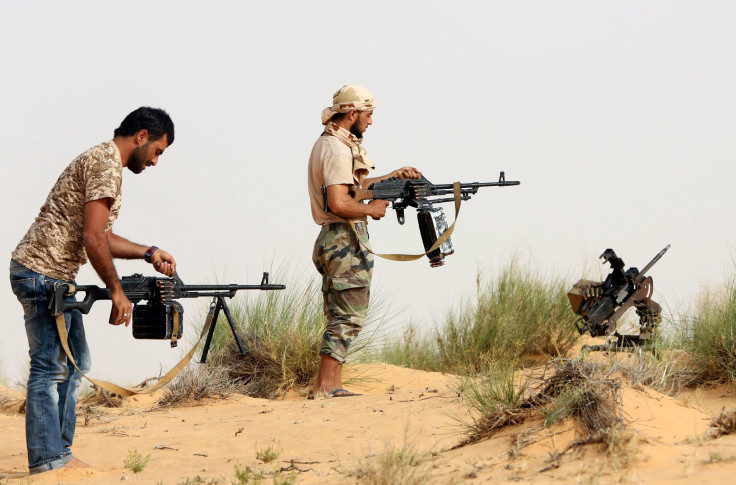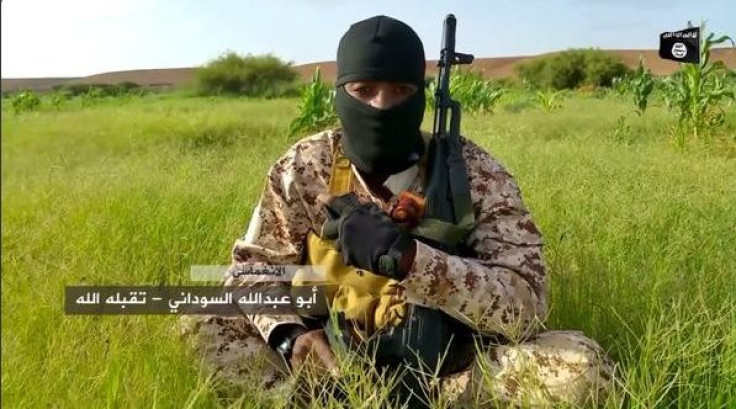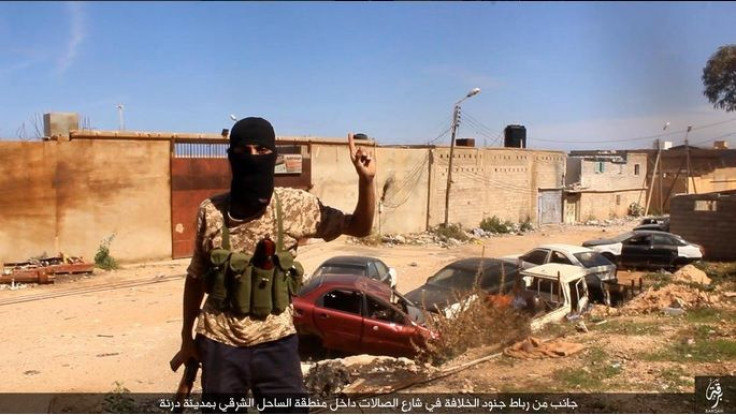Libyan Conflict Moves Deeper Into Tunisia, Amid U.N. Peace Talks, Rise Of ISIS

BEIRUT -- An armed group in the northwestern Libyan coastal city of Sabratha kidnapped dozens of Tunisians late Monday night. The number of hostages has not yet been confirmed, but local news reports state that roughly 300 Tunisians were taken. Militants allied with one of Libya’s rival parliaments, the Tripoli-based General National Congress, claimed responsibility for the kidnapping, according to Jawhara FM, a Tunisian news outlet.
The kidnapping was an act of revenge and leverage against the Tunisian government, whose security forces recently arrested a Libyan politician, aligned with the GNC, on charges of aiding terrorism by facilitating the travel of Tunisian foreign fighters to Iraq and Syria, according to local reports. On Tuesday, just hours after the Tunisians were detained, officials from the Tripoli parliament rejected a United Nations peace proposal for a joint unity government.
Houcine Dhaouadi, the deputy municipal leader in Sabratha, home to a Unesco World Heritage Site on Libya’s northwestern border with Tunisia, was reportedly detained with another Libyan upon his arrival at the Carthage airport in Tunisia on Saturday. The Sabratha Municipal Council condemned the arrests and said Dhaouadi was traveling to Tunisia on a U.N. mission, according to a written statement.
Sabratha Municipality urges Tunisian authorities to set its Mayor free http://t.co/jj1IrS01f0 #Libya #Tunisia pic.twitter.com/Z1TuW0YAan
— The Libya Observer (@Lyobserver) October 13, 2015The hostages were reportedly Tunisians who had come to Libya to work and were just passing through Sabratha.
"Gunmen kidnapped my father. ... We talked with the kidnappers over the phone and [they] told us they would release them only when Tunisia frees the Libyan officials arrested in Tunisia," the daughter of one of the hostages told local radio, according to Reuters. "I ask the authorities to intervene."
Tunisia, the only democracy to emerge from the Arab Spring, has become increasingly entwined in Libya’s chaotic civil war, which has left a power vacuum that terrorist organizations like the Islamic State group, also known as ISIS, and al Qaeda have been only too eager to fill.
Dhaouadi is believed to be the brother of Muftah Dhaouadi, an Islamist fighter who was killed in a plane crash last year while flying from Libya to Tunisia, allegedly for medical treatment. Muftah was the leader of the now-disbanded Libyan Islamic Fighting Group, an al Qaeda-linked militia that fought during the 2011 revolution against dictator Moammar Gadhafi.

At the start of the Libyan civil war in 2014, members of Muftah’s militia joined the Libyan Shield Force, an armed group allied with Libya Dawn, an umbrella organization of militias from the city of Misrata, many of which are considered to be relatively moderate to secular. Libya Dawn is the primary armed force fighting alongside the GNC, the political party first elected as Libya’s post-Gadhafi transitional government. Although the GNC lost the following set of elections, it refused to relinquish power and set up a government in the capital, Tripoli, last year.
Since then, the group has been fighting for control of Libya against the elected House of Representatives, the internationally recognized government in the far east of the country. HOR is backed by Gen. Khalifa Hifter, a former general in Gadhafi’s army who formed his own militia at the start of the war aiming to eradicate what he calls the “Islamist threat,” which now includes both the Islamic State group and forces loyal to the GNC.
Libya’s civil war and increasing presence of militants, domestic and foreign, poses a serious security threat to neighboring Tunisia and Egypt. For years, the Tunisian desert on the border with Libya has been home to training camps for various jihadist groups flush with weapons left over from Gadhafi’s regime. Libyans and Tunisians alike have helped North Africans travel to Syria to join ISIS --- similar to what Dhaouadi is accused of doing. However, since Tunisia has been hit with a wave of terrorist attacks, the government has imposed much harsher penalties on militants operating in the country.
To this end, Tunisia recently announced it would cooperate with Egypt to combat the growing threat of terrorism in Libya. But this alliance leaves Tunisia in a vulnerable position since Egyptian President Abdel Fattah el-Sisi’s support for the HOR government establishes him and his allies as enemies of the Libya Dawn militias in Sabratha.
Rise of ISIS
The Islamic State group is another, growing, force to be reckoned with. The group has been active and gaining ground in Libya since last October, when the Shura Council of the Youth of Islam, a former al Qaeda-aligned militia based in the port city of Derna, pledged allegiance to ISIS "Caliph" Abu Bakr al-Baghdadi.

The people of Derna, and the city’s militants who predate ISIS, have since revolted against the militant group. Earlier this week, Tunisian militants spoke in an audio recording claiming that 750 Tunisian ISIS fighters were heading to the city to behead those who opposed the group.
Despite setbacks in Derna, ISIS continues to make gains across the country. Last week, an ISIS affiliate attacked areas around the country’s main oil reserves, “suggesting intent to launch an offensive to seize lucrative oil facilities in the near term,” according to a report from the Institute for the Study of War. “Territorial control … allows ISIS to claim continued success, even as it faces multiple opponents in Iraq and Syria.”
© Copyright IBTimes 2024. All rights reserved.












